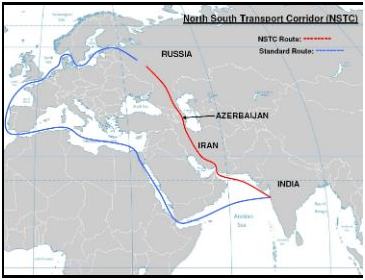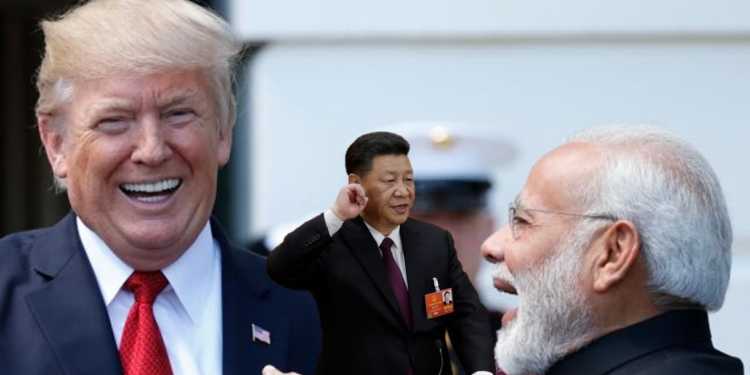India is preparing a counter to China’s nefarious One Belt, One Road (OBOR) initiative. Many countries are concerned on China’s plan for global domination through OBOR. India will have its own plan to invest in energy, transport, tourism and technology infrastructure through cooperation with United States and Russia to counter OBOR. In next week’s India-Russia annual summit, both countries will hold talks on a corridor connecting Russia-Kazakhstan-Turkmenistan-Iran-Oman-India. This project will complement The International North–South Transport Corridor (INSTC) and The Ashgabat agreement and India’s association in Iran’s Chabahar Port. INSTC is a 7,200-km-long multi-mode network of ship, rail, and road route for moving freight between India, Iran, Afghanistan, Armenia, Azerbaijan, Russia, Central Asia and Europe while The Ashgabat agreement is a multimodal transport agreement between India, Iran, Kazakhstan, Oman, Pakistan, Turkmenistan and Uzbekistan for creating an international transport and transit corridor facilitating transportation of goods between Central Asia and the Persian Gulf. The holistic plan could also be discussed at the Indo-Uzbek Summit next week.

On the United States front, international finance development agency plans to five mega financial package to develop infrastructure projects to counter OBOR. Overseas Private Investment Corporation (OPIC) has already signed agreement with Japan and Australia to develop this counter-OBOR projects and it is in talks with India. “Those partnerships allow the three countries to streamline the process of joint investments in energy, transport, tourism and technology infrastructure. The investments are also meant to attract private capital to the projects — investments that are, in some cases, many times larger than those of the three governments. OPIC’s influence in the Indo-Pacific region is set to grow after the passage of a Bill that would give the agency authority to invest equity in development projects instead of just providing loans,” said OPIC president and CEO Ray Washburne.
The One Belt One Road (OBOR) initiative is a major part of the domestic and foreign policy agenda of Chinese President Xi Jinping. OBOR represents by far China’s most ambitious project to connect the country with Africa, Central and Southeast Asia, Europe and the Middle East through transportation infrastructure. OBOR’s two main components, the Silk Road Economic Belt and the Maritime Silk Road, comprise a multi-trillion-dollar plan spanning 68 countries, which represent 60 percent of the global population and up to 40 percent of the global GDP. The OBOR’s stated goal is to develop infrastructure for poorly connected regions of the world, but the hidden agenda behind this ambitious plan is to lay the groundwork for a Sino centric global order.
China wants to economically colonize the poor countries in Central, South and Southeast Asia through this ambitious project, as it has already done in Africa. This project could be compared to the Marshall Plan which United States announced for infrastructure building in post World War II Europe. The unstated goal of the Marshall Plan was to stop countries in Europe from joining the Soviet Union and pressure them to join NATO by building ports, pipelines, roads, and railways for them. Similarly, by building ports, economic zones, railways for poor countries like Pakistan, China aims to bring them under its hegemony. Although the countries are now realizing that any project under OBOR is harmful and unviable. Sri Lanka has to give Hambantota port to China because they could not pay back loans, Malaysia doesn’t want the same to happen. Countries like Malaysia, Sri Lanka, and Pakistan borrowed from China and now their public finance is under stress and inability to pay back loans will lead changing the ownership of collaterals. Countries are now realizing this and some of them are canceling, renegotiating the projects.




























